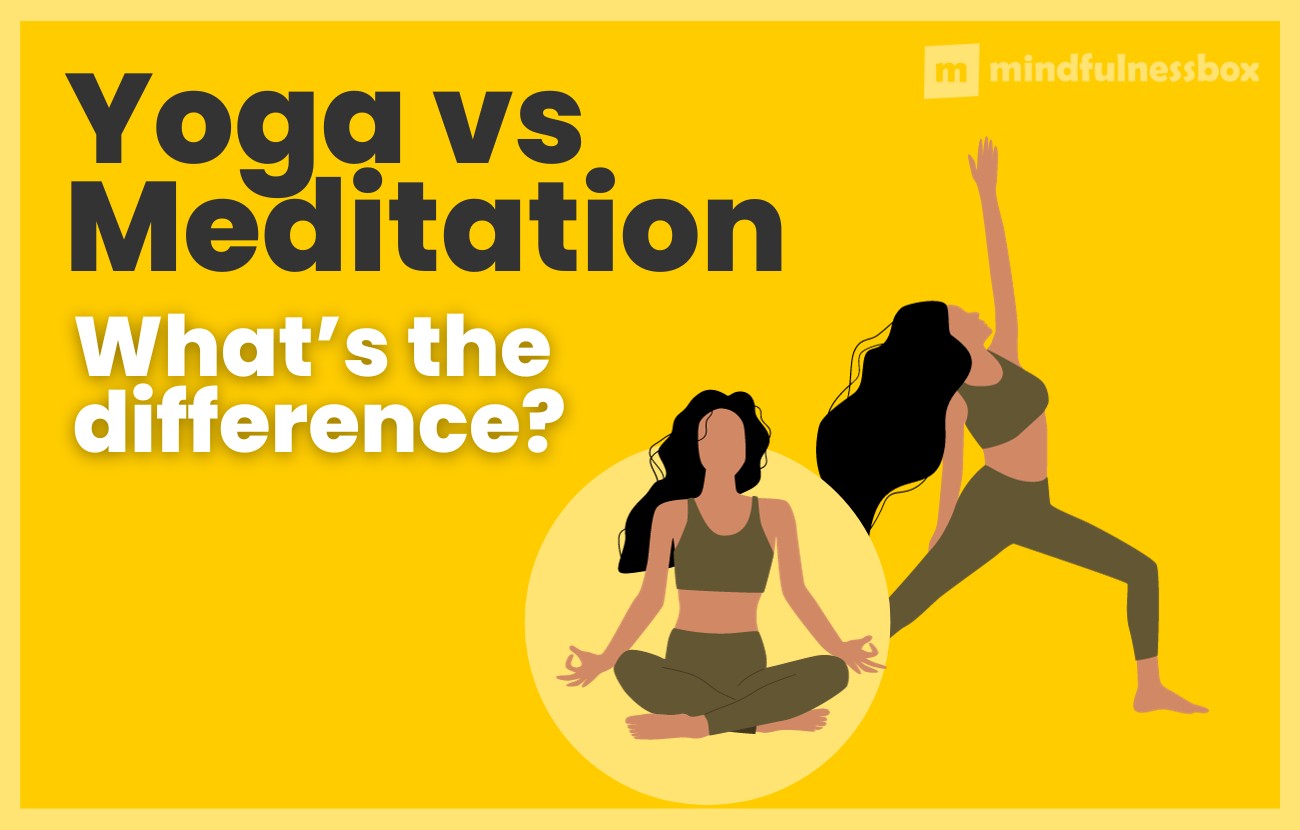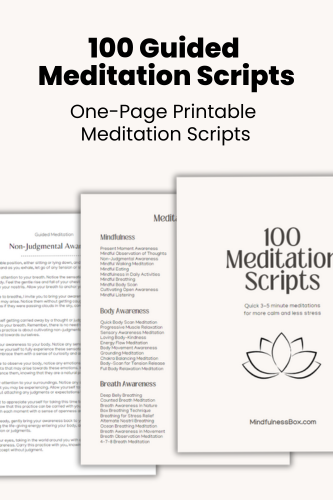What’s the main difference between yoga vs meditation? Yoga is a holistic practice intended to unify the body and mind. Meditation falls under the umbrella of yoga activities, as a practice specifically focused on the mind.
When you’re lying at the end of a yoga session in Savasana—the resting pose at the end of many yoga practices—it can feel like it’s the same as meditation.
These 100 meditation scripts were created to help beginner and intermediate meditators practice key mindfulness concepts like self-love, forgiveness, gratitude, and inner peace.
Designed to fit into busy schedules, each meditation script lasts 3-5 minutes. Perfect for starting or closing a group meditation; for yoga, coaching, or therapy sessions; or for your personal meditation practice.
And indeed, from their respective histories to their current practice, yoga and meditation have tremendous crossover.
At the same time, yoga (covering mind and body) and meditation (centering exclusively on the mind) have different focuses and develop unique skills. Each has its own benefits.
Let’s explore how meditation and yoga support each other, as well as how they’re different.
Yoga versus Meditation
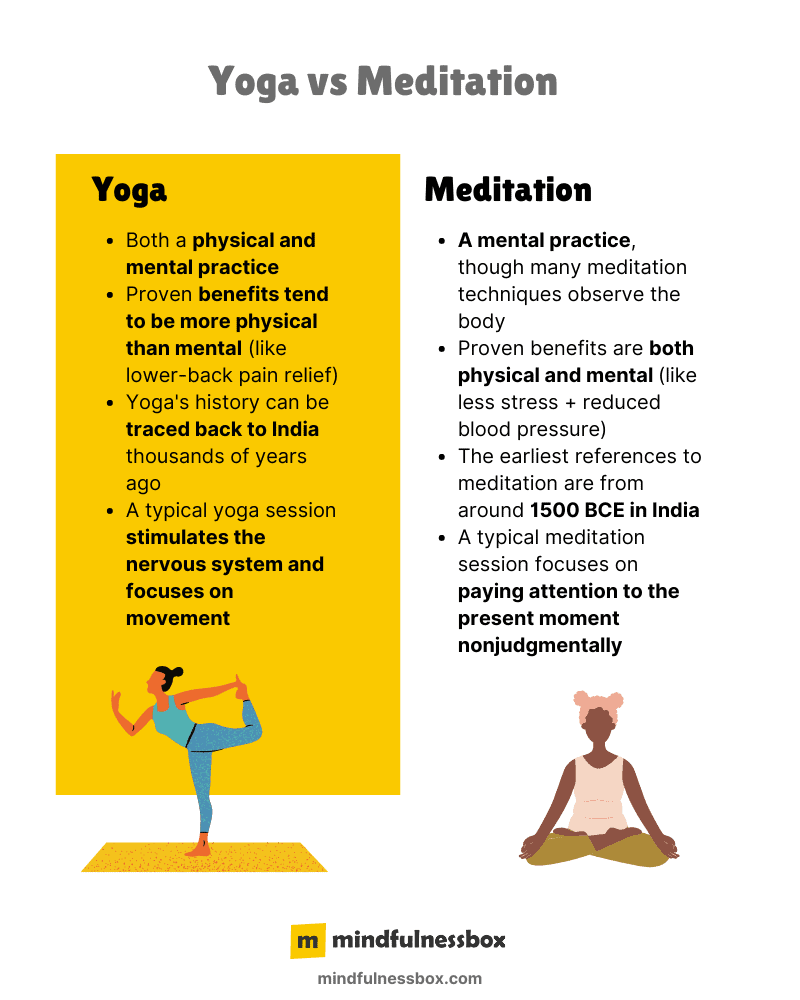
So, what’s the difference between yoga and meditation?
The main difference between yoga and meditation is that meditation is a purely mental practice to focus your attention and calm your mind, while yoga is both a physical and a mental practice.
While yoga involves poses and breathing exercises and requires the movement of the entire body, meditation focuses on the mind.
In a traditional Indian context, yoga is seen as a holistic practice intended to unify the body and mind. Yoga covers all aspects physical, mental and spiritual.
In Hindu tradition, meditation falls under the umbrella of yoga activities. It’s a practice that’s specifically focused on the mind.
Benefits of yoga vs meditation
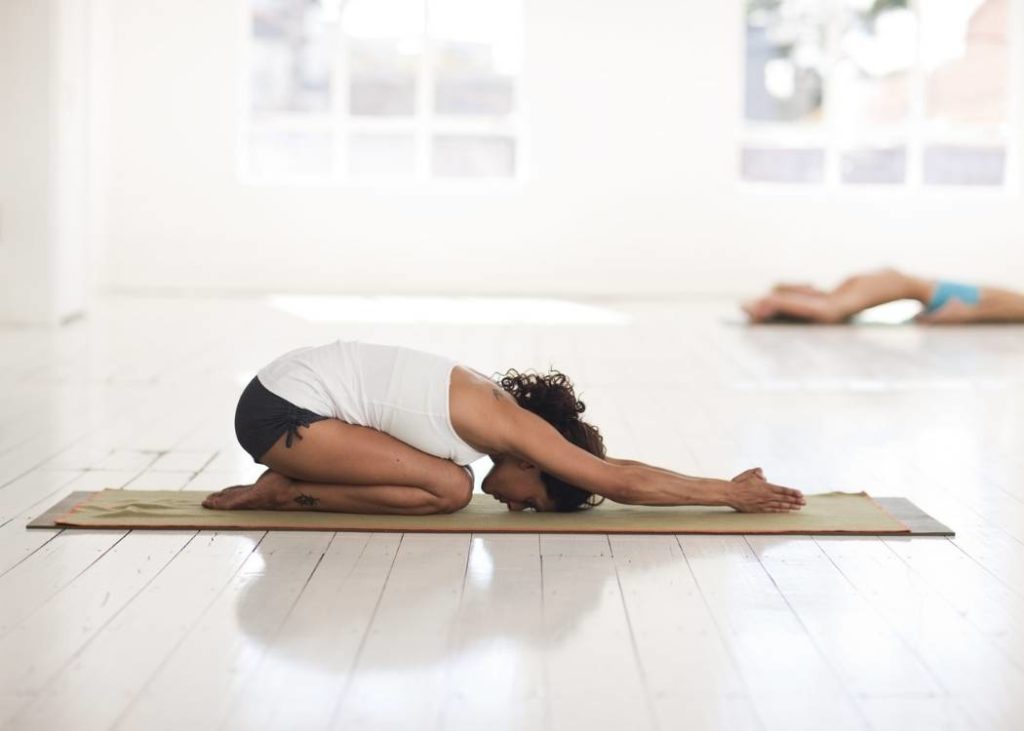
However, in a modern, research-backed context, meditation is viewed and studied independently of yoga.
There have been many studies on yoga, but most have included small numbers of people and have indicated promise (but not necessarily proven health benefits).
The benefits of yoga tend to be more physical than mental:
- Relieving lower-back and neck pain
- Relieving osteoarthritis
- Easing pain from tension-type headaches
- Improving balance
By contrast, the benefits of meditation tend to be more mental than physical. So far, they are better supported than yoga by scientific evidence.
Studies on meditation have found evidence of benefits like:
- Reduced blood pressure
- Reduction in anxiety and depression
- Improved symptoms in people dealing with insomnia

Both yoga and meditation can be traced back to ancient India thousands of years ago.
Depictions of yoga have been found that trace its history back thousands of years to the Vedic or pre-Vedic period in India.
Yoga is mentioned in the Vedas, a large body of religious texts from ancient India, and in this context it was originally a way to achieve spiritual enlightenment.
Similarly, the earliest references to meditation are from India around 1500 BCE.
Meditative practices in the Hindu traditions of that time, and other forms of meditation developed by the 5th century BCE in Buddhist India and Taoist China.
In the 1960s and 1970s, yoga and meditation (as well as mindfulness) started to make their way from Asia to the United States and Europe. In the decades since, each has grown substantially on a global level.
Yoga is more active than meditation
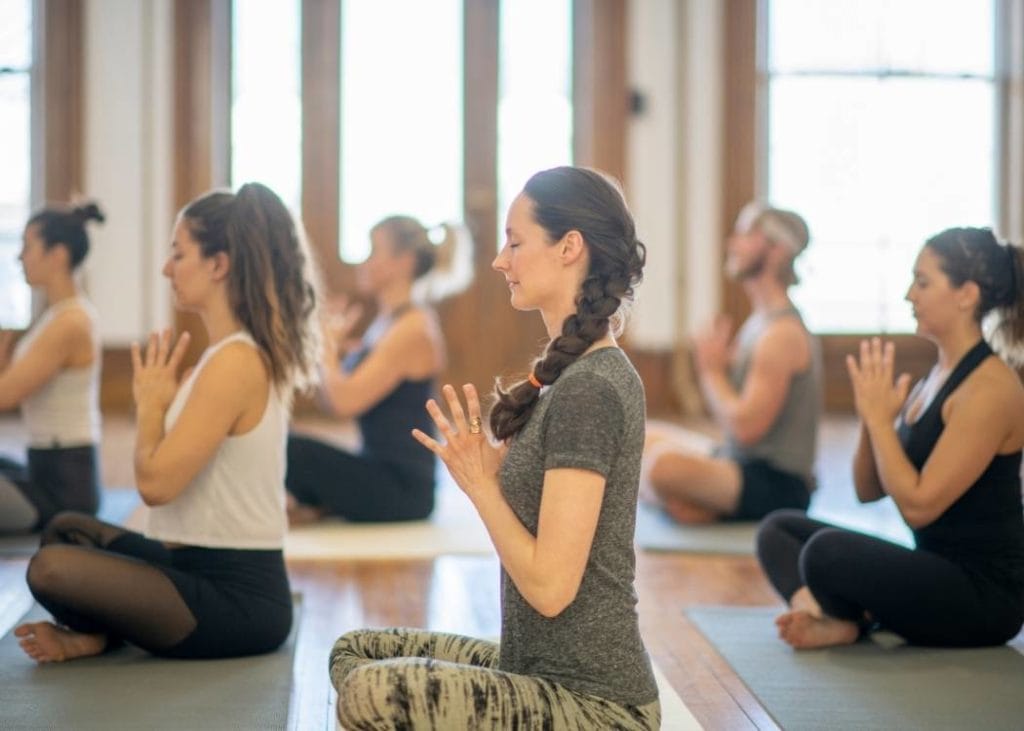
Let’s state the obvious:
When you’re entering a yoga class, the clearest distinction you’ll notice between the two practices is that yoga is much more active than meditation.
Yoga includes poses and breathing exercises that require the movement of the entire body. Yoga is also focused on maintaining balance and the mind-body connection, whereas meditation is solely focused on the mind.
A typical yoga session includes multiple physical poses that stimulate the nervous system and bring the body and mind to a calmer state.
Meanwhile, when entering a group meditation session, the first thing you’d notice is the stillness and quiet.
Meditation is not exercise. Rather, it’s a practice purely focused on the mind, intended to build the skill of paying attention to the present nonjudgmentally.
Is it better to do yoga or meditate first?

If you’re doing both yoga and meditation in back-to-back sessions, most people recommend yoga first as a way to prepare the body for meditation.
Meditating first may bring greater focus to your yoga practice and asanas. However, some people find that the relaxed feeling common after meditation isn’t an ideal preparation for the energy and movement required for yoga.
By contrast, yoga is likely to lift your energy and get your blood flowing, and is also preparation for meditation in the sense that you feel centered and calm.
Doing yoga before meditation may also help remove any restlessness from your body and make it easier to settle your mind.
Should I meditate or do yoga?
Both, if you can.
If not, practice one that suits your needs or preferences better.
If you’re looking for a practice that will help keep your body healthy and alleviate physical challenges while uniting your mind and body, yoga may be your best choice. It combines stretching and balance poses with deep breathing, and can help you lose weight, tone your body, and improve your flexibility.
On the other hand, meditation may be the best choice if you’re looking for a practice to specifically improve your mental health, reduce stress and anxiety, and create a sense of calm.
Whichever you pick, know that you’re practicing a technique that has helped people improve their health and wellness for thousands of years.
Frequently asked questions
Is yoga a form of meditation?
No, yoga isn’t a form of meditation. In fact, in traditional Indian practice, meditation falls under the umbrella of the wider practice of yoga, which covers mind, body and spirit. Modern yoga and meditation practice are highly related but separate practices, with yoga focusing on the connection between body and mind, and meditation focusing primarily on the mind.

My mindfulness practice kicked off in 2016 with a ten-day silent retreat. Since then, I’ve read dozens of books about mindfulness and completed hundreds of hours of meditation. Thinking about what makes humans happy, calm, and peaceful is endlessly fascinating to me.

